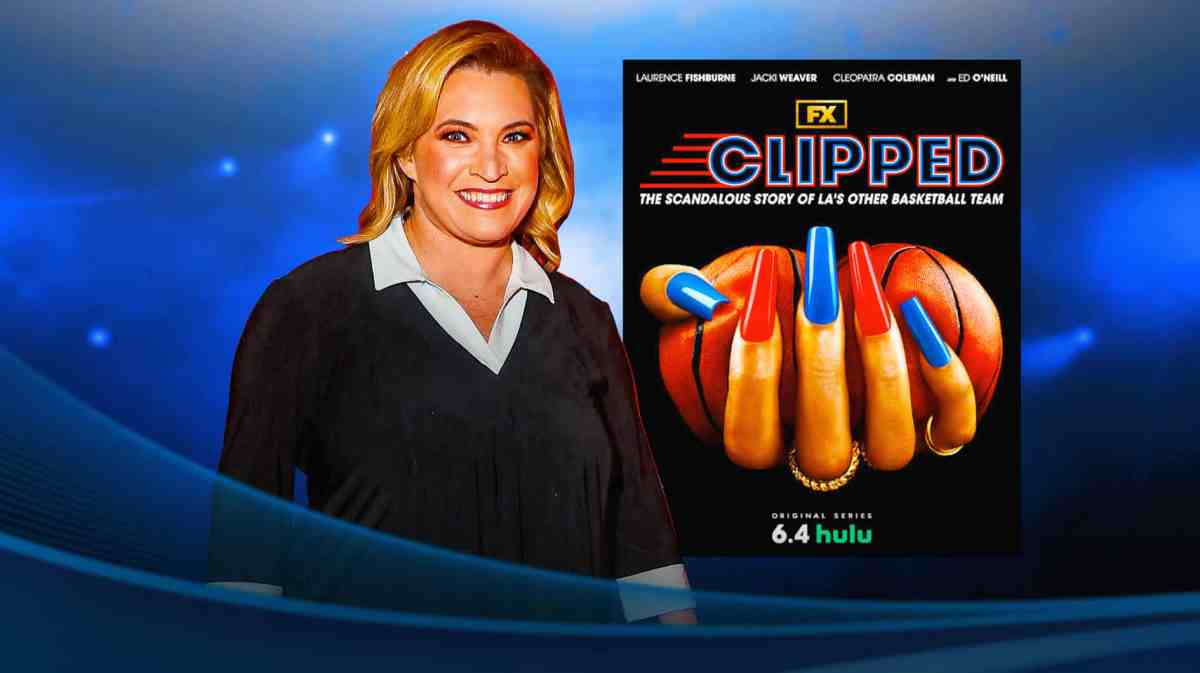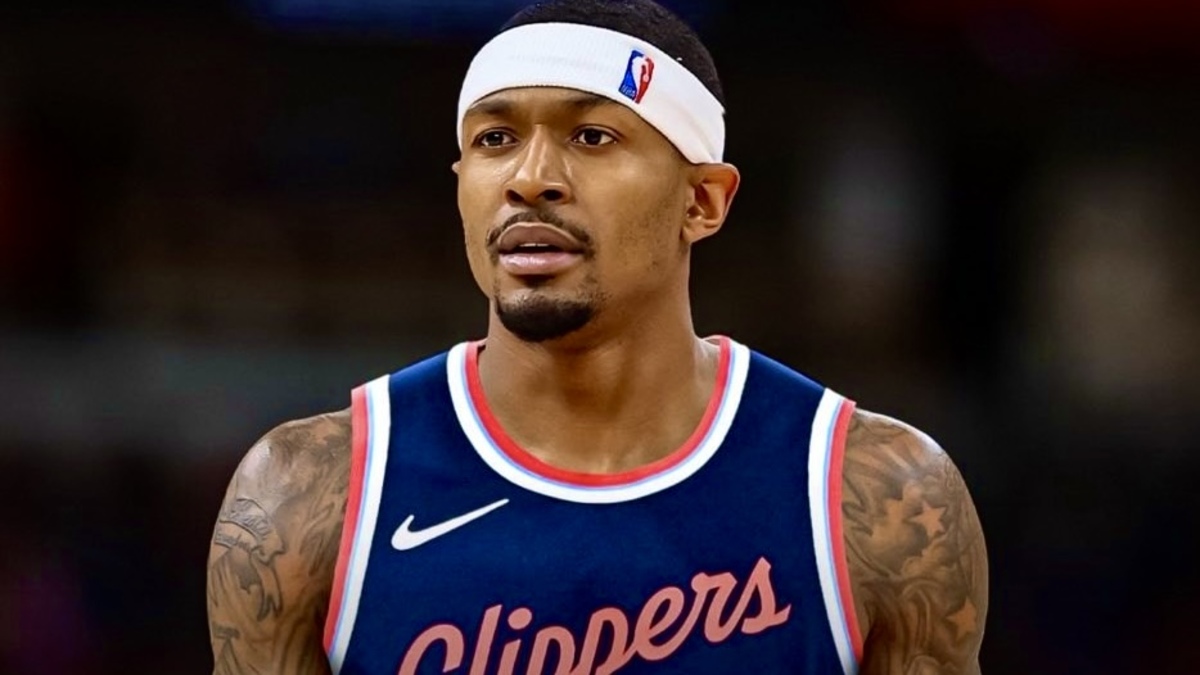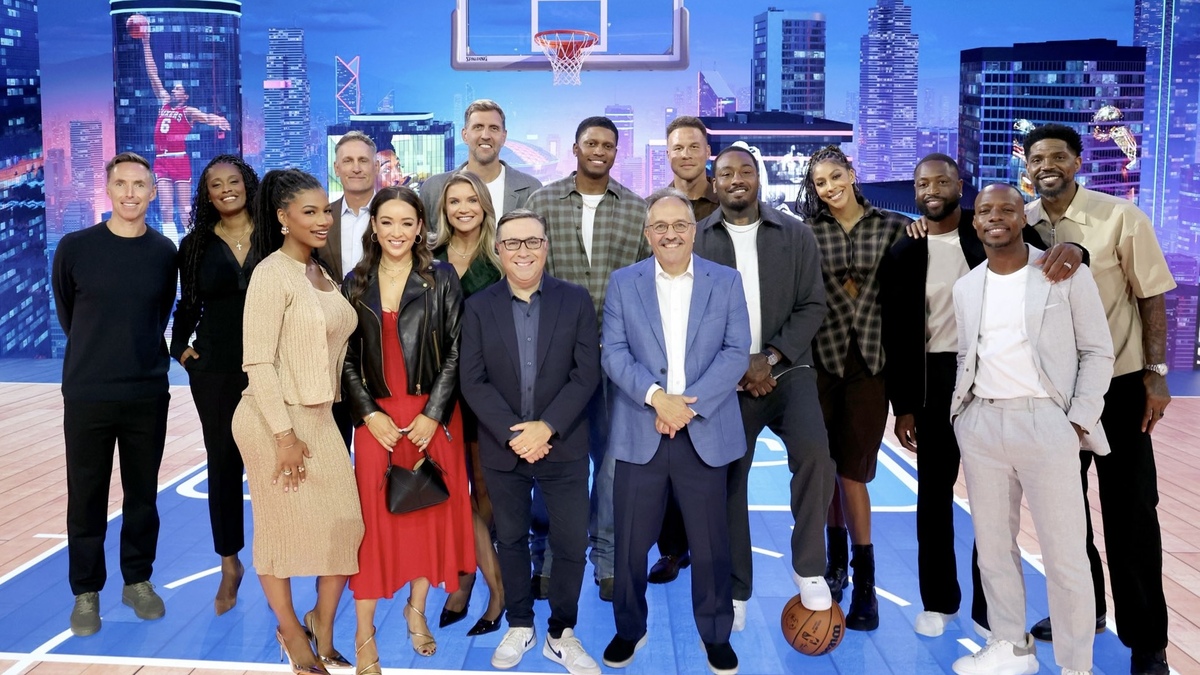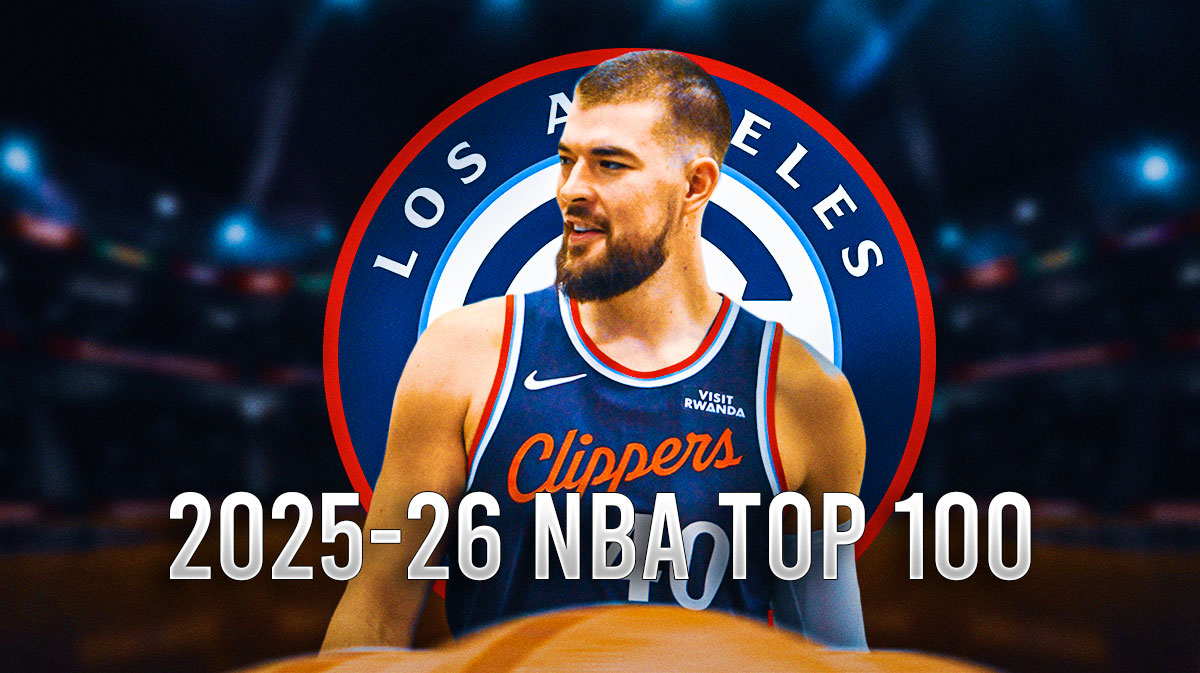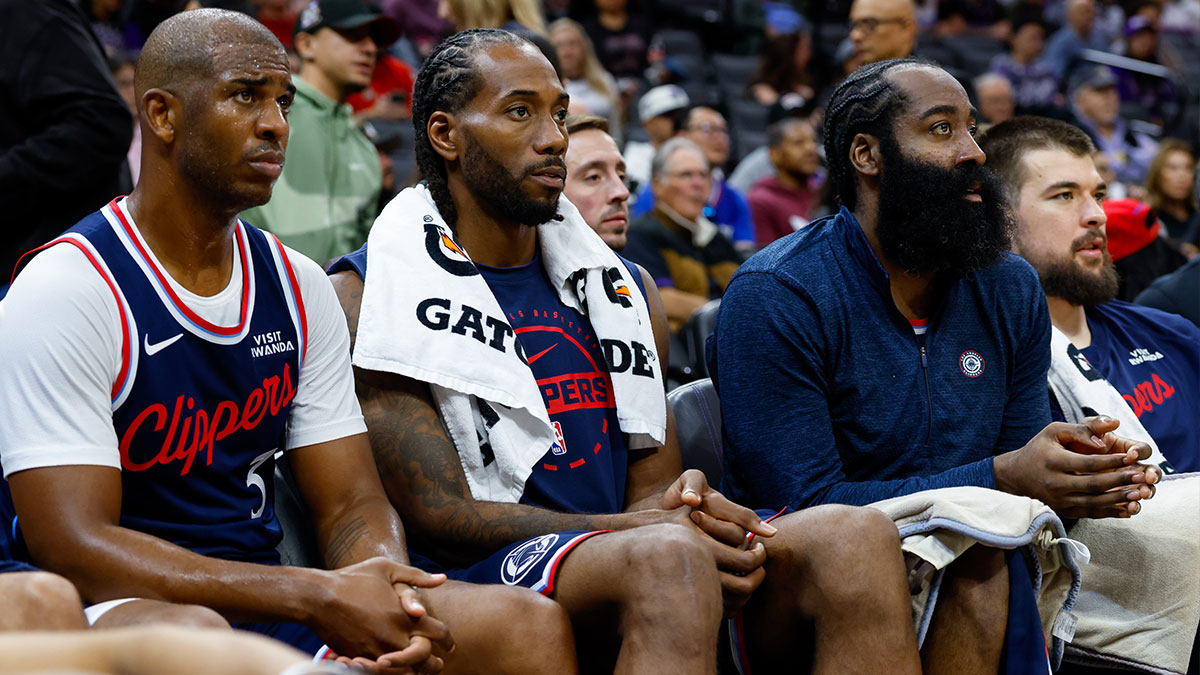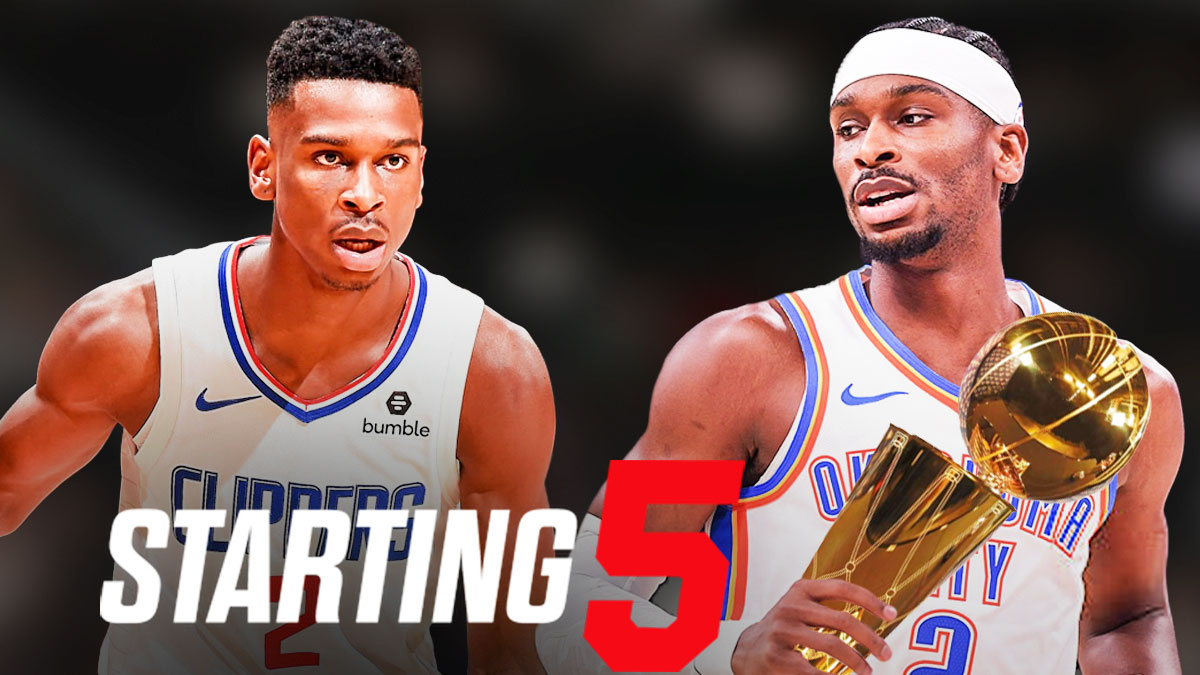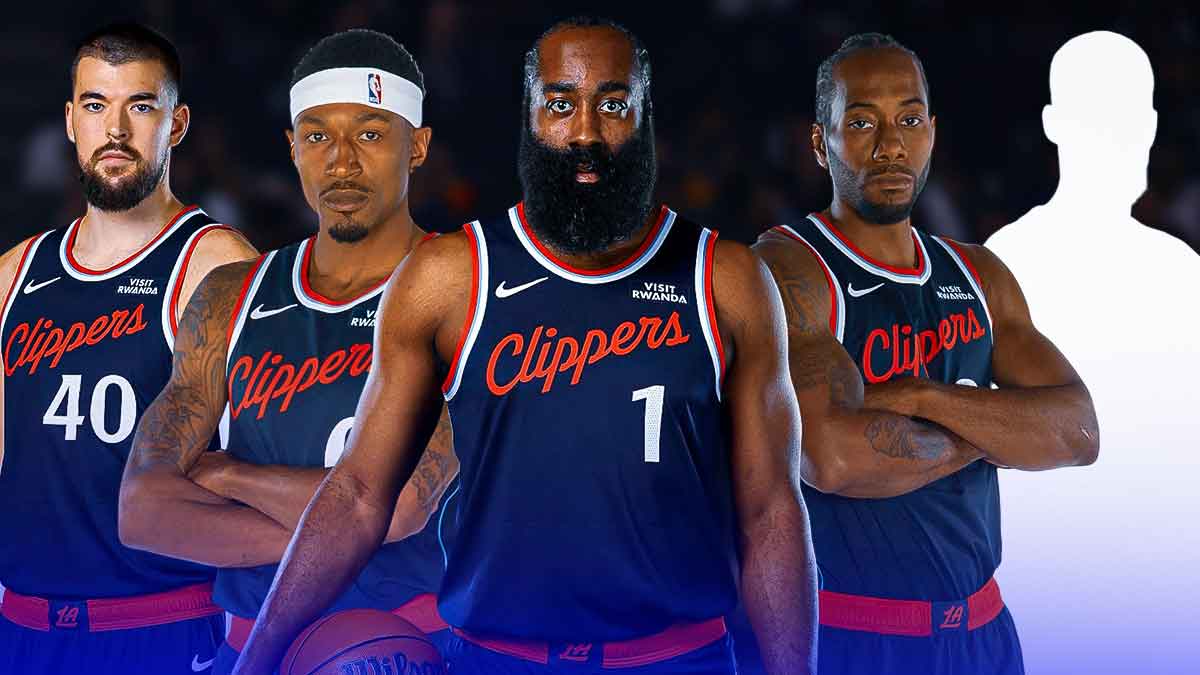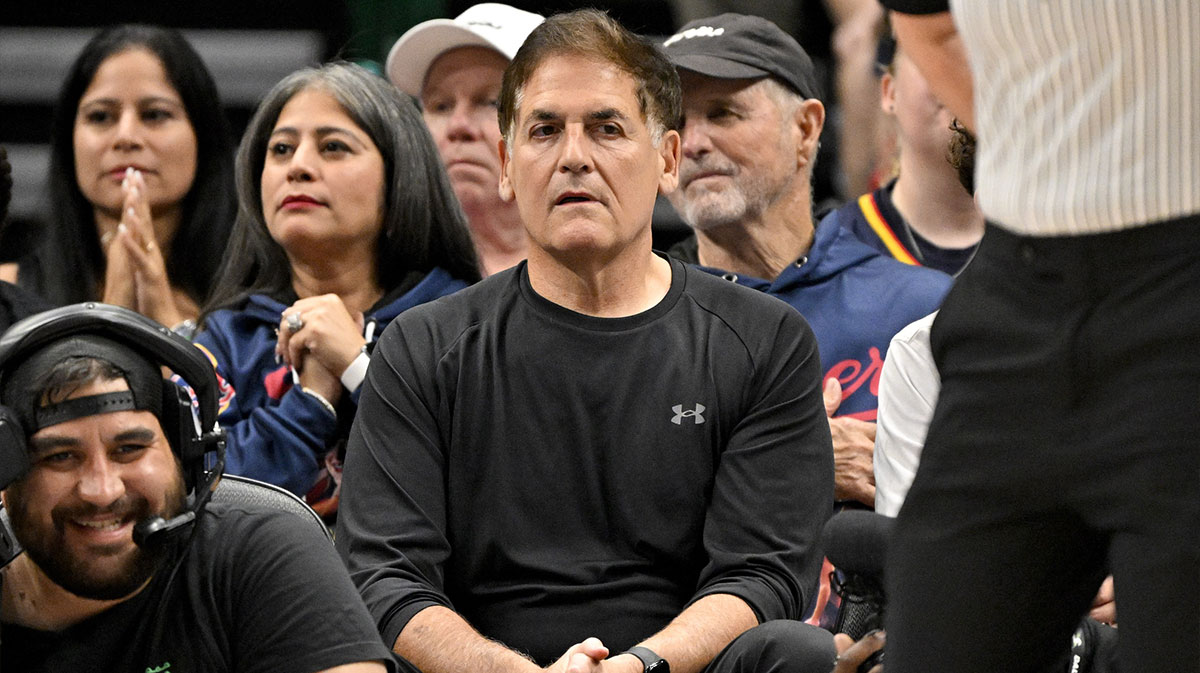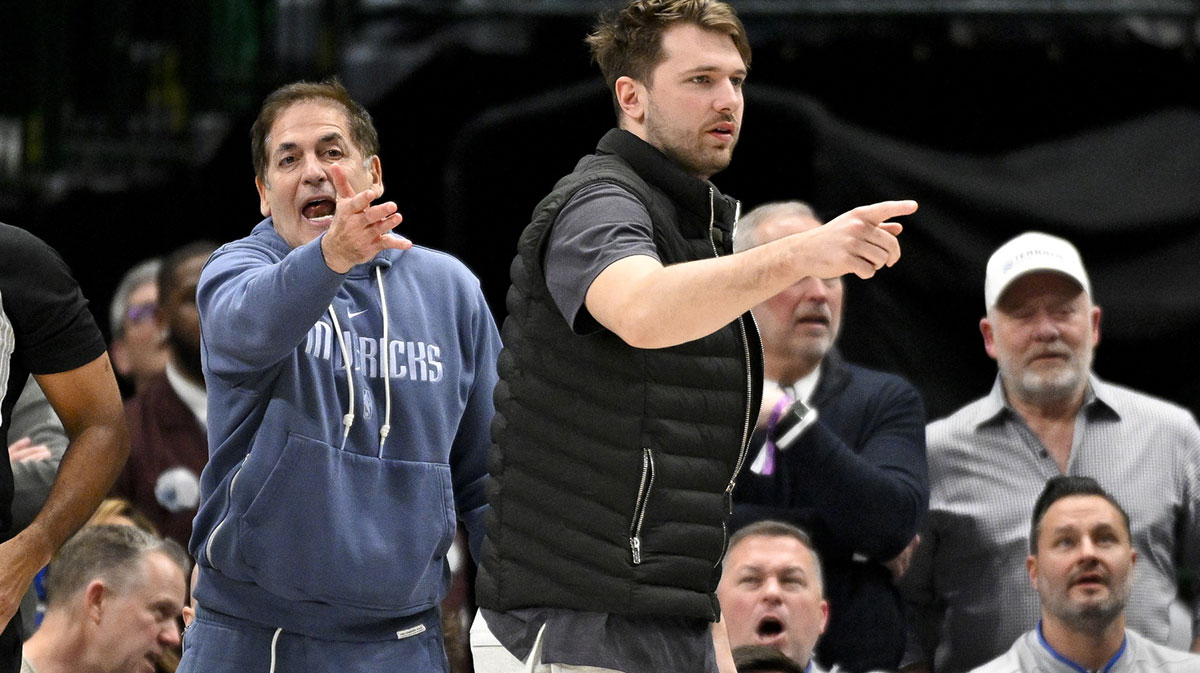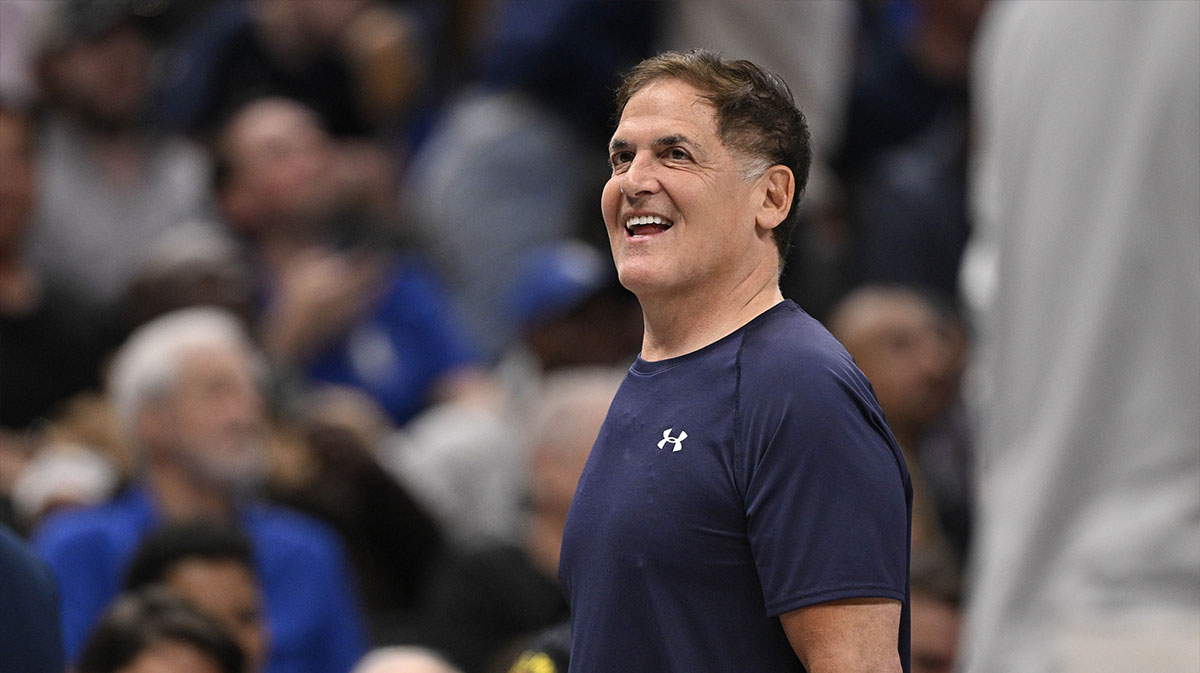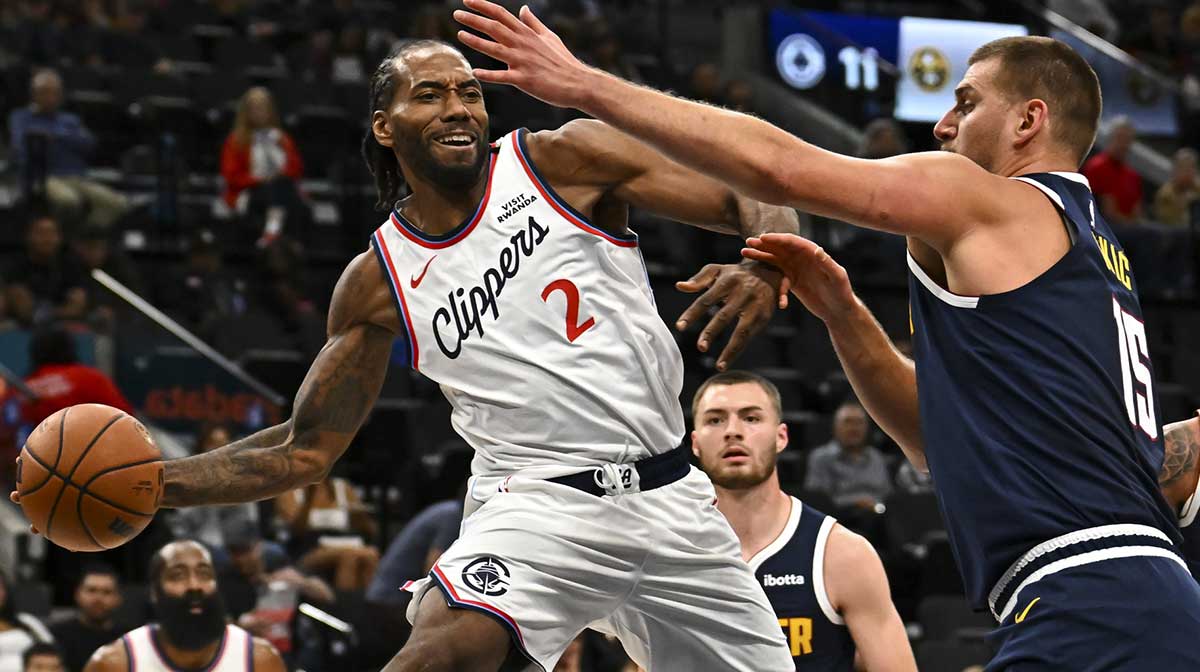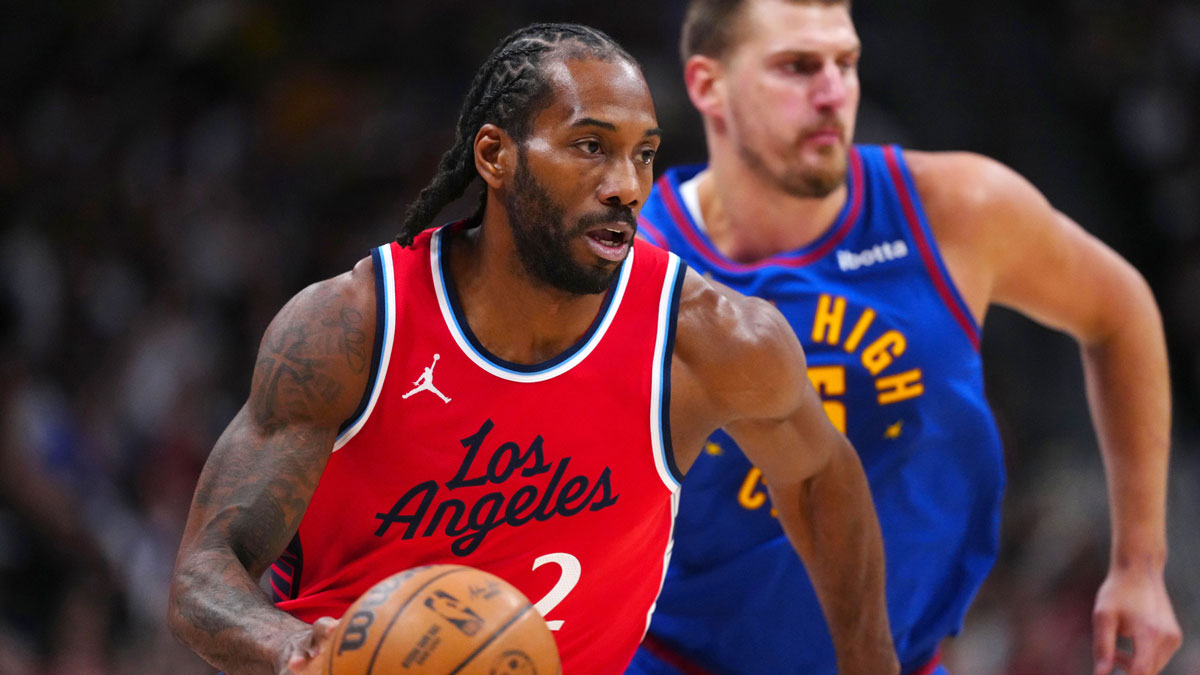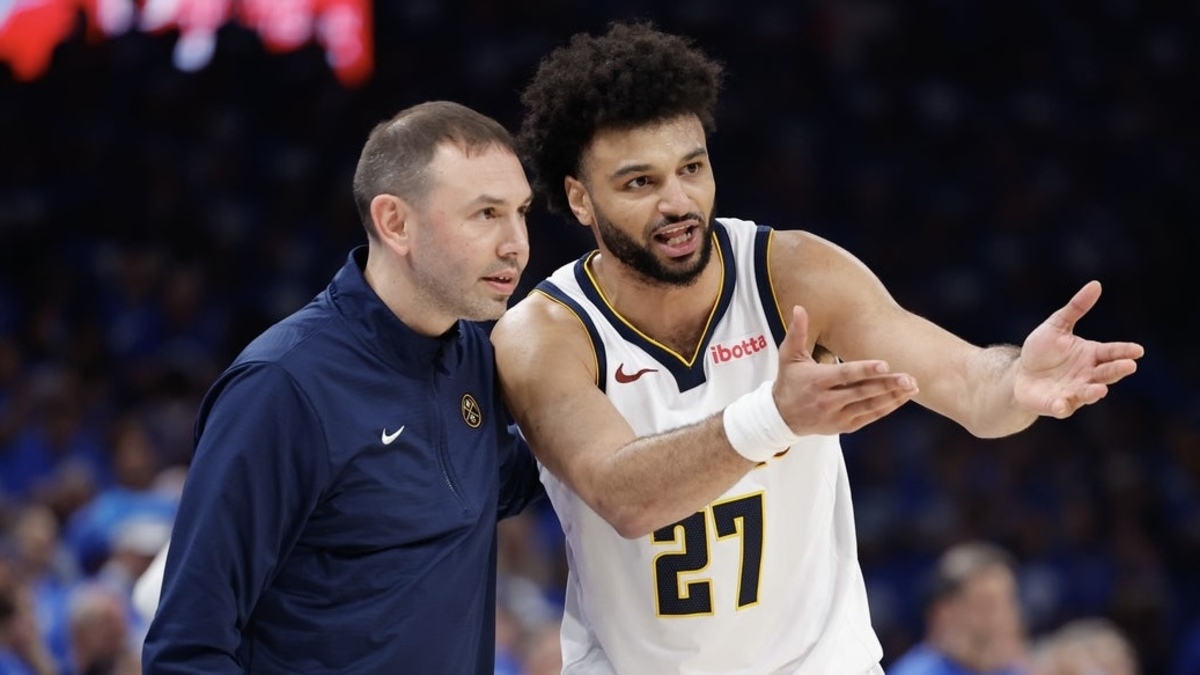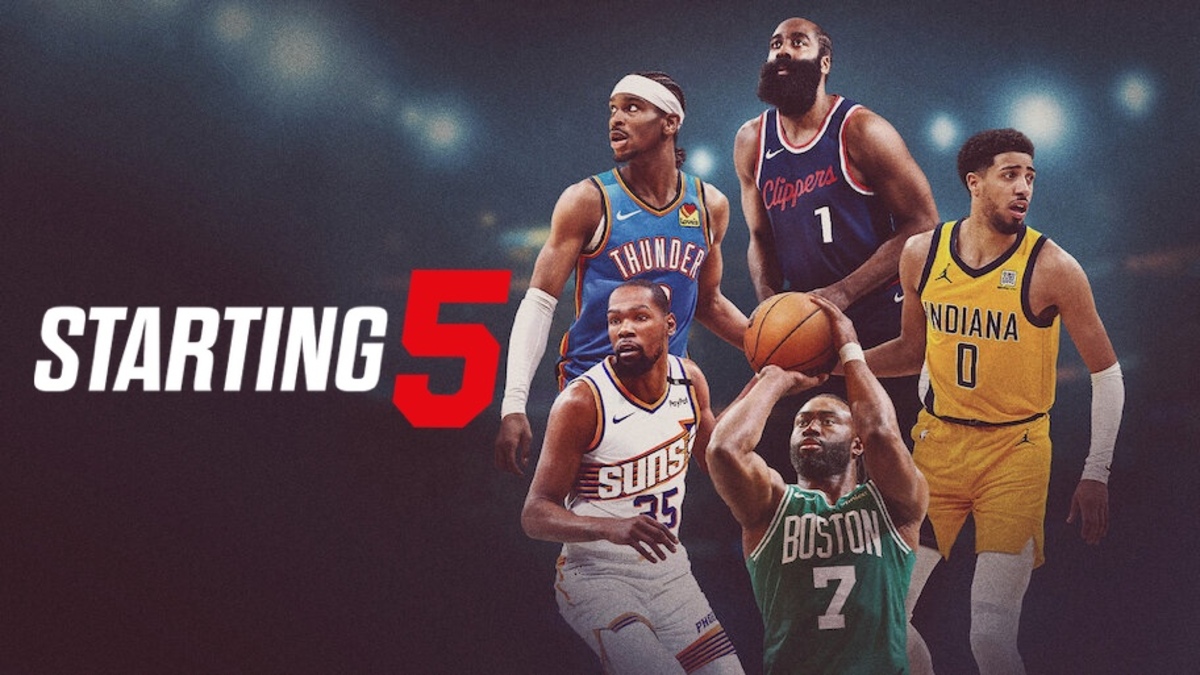If you're not running around this week covering the NBA Finals for ESPN while also doing press for your new hit drama on FX, then you're probably not Ramona Shelburne. The multi-hyphenate senior ESPN reporter and on-air personality can now add Hollywood executive producer to her impressive resumé.
Clipped, the six episode limited series based on her hit 30 for 30 podcast The Sterling Affairs, premiered this month to rave reviews, and is fortuitously timed to give basketball fans (and non-fans, for that matter) something to watch this summer, with this NBA Finals looking like it will end woefully prematurely for most of our tastes (outside of the Boston area of course).
Shelburne spoke to me about the years-long process of adapting the Donald Sterling scandal into first, a podcast, and now a TV show, and how the story transformed her career.
It's hard to imagine a time when L.A. native Shelburne was just an up-and-coming, local sports-covering reporter for ESPN LA, but so it was in 2014 when she was assigned to follow the Clippers during their first round series against the not-yet-a-dynasty Golden State Warriors.
At the time, Shelburne — whose usual beat was covering the Lakers and Clippers — was excited to be given the assignment of covering the Rockets-Trail Blazers playoff series, given the spotlight of the more nationally prominent series, and the chance for her to expand her horizons at the network.
But little did she know that an even bigger story back home would break in the middle of covering that Rockets-Trail Blazers matchup, following the release of a tape that would go on to rock the basketball world and prompt a national conversation and reckoning about race and racism.
That tape of course was Clippers then-owner Donald Sterling chastising his mistress V. Stiviano for “associating with black people” and “bring[ing] them to my games,” amongst other hate-filled vitriol.
Shelburne was asked to immediately switch gears and cover the Sterling story, which was growing weirder and more troubling by the minute.
“I knew Sterling, but we didn't have a real relationship,” says Shelburne. “He didn't do interviews back in those days.”
Surprisingly, Shelburne admits at this point that “there was still this pang of ‘oh this is my chance to cover national games',” which she was now missing out on to cover Sterling.
But she credits her then-editor Eric Neel with hammering home to her that, “This is a really big story and you're uniquely well positioned to cover it because you know all the people with the Clippers.”
“‘Forget about the rest of the playoffs',” Shelburne recalls him saying. “‘This is the story of the NBA right now!' And he was right.”
It was her ‘follow the money' moment (to borrow a quote from the original blockbuster-news-scandal-turned-Hollywood-retelling, All The President's Men).
That's when Shelburne started exploring every angle of this huge breaking story — the Clippers internal debate and external pressure about boycotting Game 5; the advertisers pulling out of their deals with the Clippers; the shocking lifetime ban that newly installed NBA commissioner Adam Silver handed down.
“I don't think any of us realized he even had the potential to suspend [Sterling] for life,” Shelburne remembers thinking.
She ended up booking a hotel room near the arena after the Clippers won Game 5 of their series with the Warriors to hunker down and churn out a long narrative piece on everything that had transpired in the four days since the tape came out. That ended up being one of the definitive pieces of reporting on the scandal up to that point. Shelburne's reward for a job well done?
“Everyone just said ‘Well keep going! Now you gotta cover the sale… how is this affecting the guys on the team… is he going to sell the team?!'”
As Shelburne continued her deep-dive research and reporting into this world, she realized “as I'm living this, it just felt larger than life to me. All the characters involved — V. Stiviano with her visor and the turtle — you just couldn't write this stuff better than it was playing out in real life!”
It didn't hurt that Shelburne grew up in LA with a screenwriter mom, so she knew a thing or two about recognizing a good Hollywood story when she heard one.
“I knew what I had,” Shelburne admits.
From there, it was a matter of planting the seeds with the powers that be. ESPN dabbled occasionally with scripted dramatic content, but it wasn't their bread and butter. But when a higher-up mentioned the burgeoning podcast industry (where early breakout narrative series like Slow Burn and Serial were first putting the nascent platform on the map) — Shelburne was quick to throw her support behind the suggestion, as a fan of these types of programming herself.
It was a big undertaking but Shelburne was all in. She admits it took her a few years to complete the podcast but she had a great reason: she gave birth to her first child. “I used to joke, well I was having one actual baby and one podcast baby,” Shelburne said. “Two giant creative projects all at the same time.”
When the five-part 30 for 30 podcast, The Sterling Affairs, finally did premiere in 2019, Hollywood producers quickly came calling.
Shelburne saw the potential dramatization in the same vein as “The People v. O.J. Simpson: American Crime Story,” which had been a huge success for FX when it premiered in 2016.
Shelburne liked FX's take on her material as well, and with ESPN and FX/Hulu both being under the Disney umbrella, it just made sense as a natural home for this. Shelburne signed on as an executive producer, but then largely let Hollywood do what it does. “At that point I just let them produce,” Shelburne explains. “I had to trust them to make TV.”
Executives had Shelburne meet with the final showrunner candidates and she immediately connected with the high-profile TV drama writer Gina Welch. Interestingly, Welch wasn't a huge sports fan like some of the other finalists considered, but she was really intrigued by the story and the characters involved, and Shelburne felt confident Welch was the best person to tell the tale.
“Gina's an unbelievable researcher,” Shelburne stressed. “She would ask me stuff that I had no idea about!”
I asked Shelburne if there was anything left on the cutting room floor from The Sterling Affairs that she wished would have made it into Clipped. She concedes that there's some interesting backstory between longtime Lakers owner Jerry Buss and his connection with Donald Sterling, and how it gave rise to Sterling's insecurity — but she agrees that it was “the right choice” by the producers to narratively center Clipped in real time and focus on the present characters involved.
Plus, Clipped was in development at the same time as HBO's Winning Time, which centered on the 80s showtime Lakers, so steering clear of any Lakers connections was probably a good move for competing prestige television networks (it seems the Clippers can't even escape the Lakers' shadow in Hollywood development circles).
Shelburne admits it's “a little weird” being on this side of interviews as a producer, compared to her usual day job as a reporter for ESPN. Also causing angst is the anticipation of hearing what the players depicted in the series feel about their on-screen portrayals.
“These are all people I cover, these are people I know — especially the players who are still in the league that I see all the time,” Shelburne explains.
Shelburne said the other night as she was covering the NBA Finals, JJ Redick came by, tapped her on the shoulder and said “Hey, congrats on the show.” She was talking to her editor at the time, but thought to herself “Oh ok, we should probably have a longer conversation about this…”
Shelburne will undoubtedly navigate this new tricky reporter/producer terrain with the same adept skillset she's used her whole career to cover complicated news stories like the Donald Sterling saga.
“It's weird to see your work Hollywood-ized… but it's also great!” Shelburne adds. “I know where a lot of the lines in the show came from… I was there when we did that interview!” She loved seeing details incorporated such as players ordering entrees at restaurants they knew Sterling wouldn't like, since he had a bizarre habit of eating food off of others' plates.
As for any positives to come out of the whole ugly Sterling saga, Shelburne confides, “I've noticed a shift in how owners deal with players since the Sterling situation.” No more are players made to feel like they have to kiss the ring, or that they're going to talk to the “Wizard of Oz” when meeting with an owner.
“Now I notice that owners are much more partners with the players,” she explains.
Many owners now go out of their way to strengthen professional as well as personal relationships with the players “because they want their input on decisions,” says Shelburne.
The power dynamic has shifted to being much more heavily weighted in the players' favor compared to the time before Sterling's ouster. Superstars are “so, so valuable to these teams,” and there's more of a recognition by owners now that “these guys are your business partners.”
“Players have a lot more power than they've ever had and I think that's a good thing for the NBA,” Shelburne said. “Anything that allows players to have a voice and have more power and say over their careers — and also, just flat out being treated better — is good for the league and good for humanity, really.”
Spoken like a true producer, Shelburne compared the dynamic to how Hollywood studios feel about their top A-list stars, and how much they understand that their films' success depends on their talent's input and creative comfort and happiness.
Ramona Shelburne's enthusiasm and devotion to the stories she covers has paid off with Clipped. So much so that a story about LA's “other team” may just prove to be more compelling than anything going on with their glitzier crosstown rivals for once.

